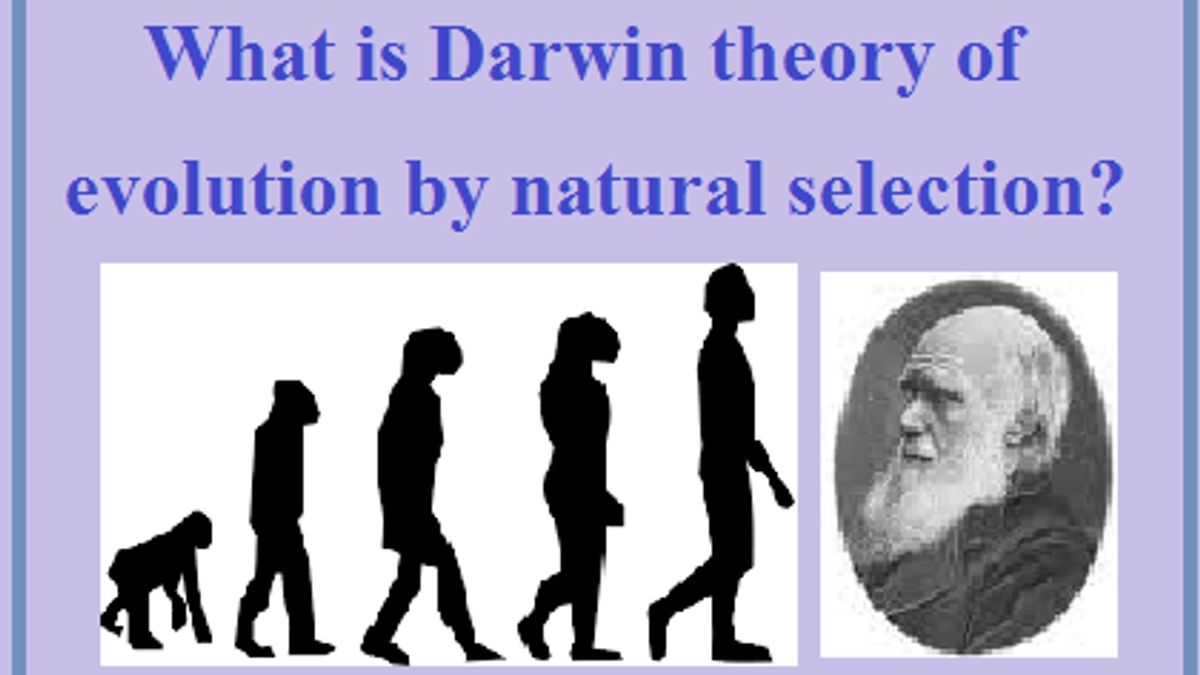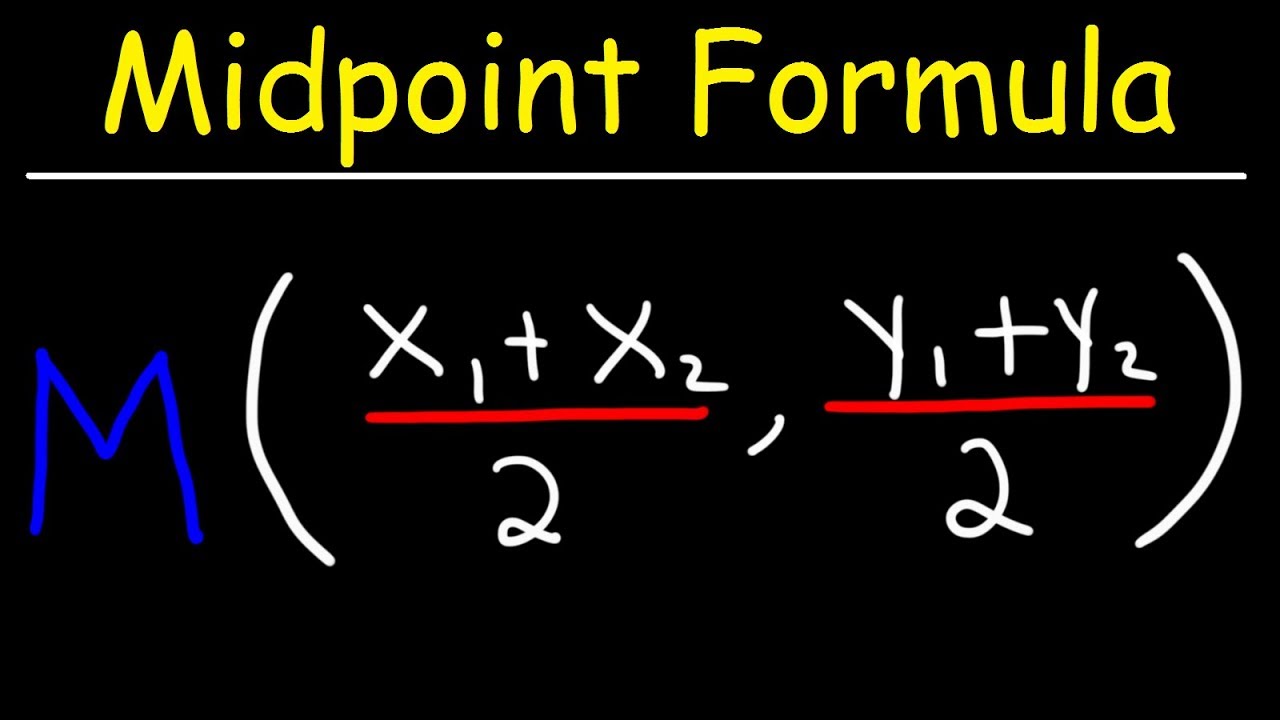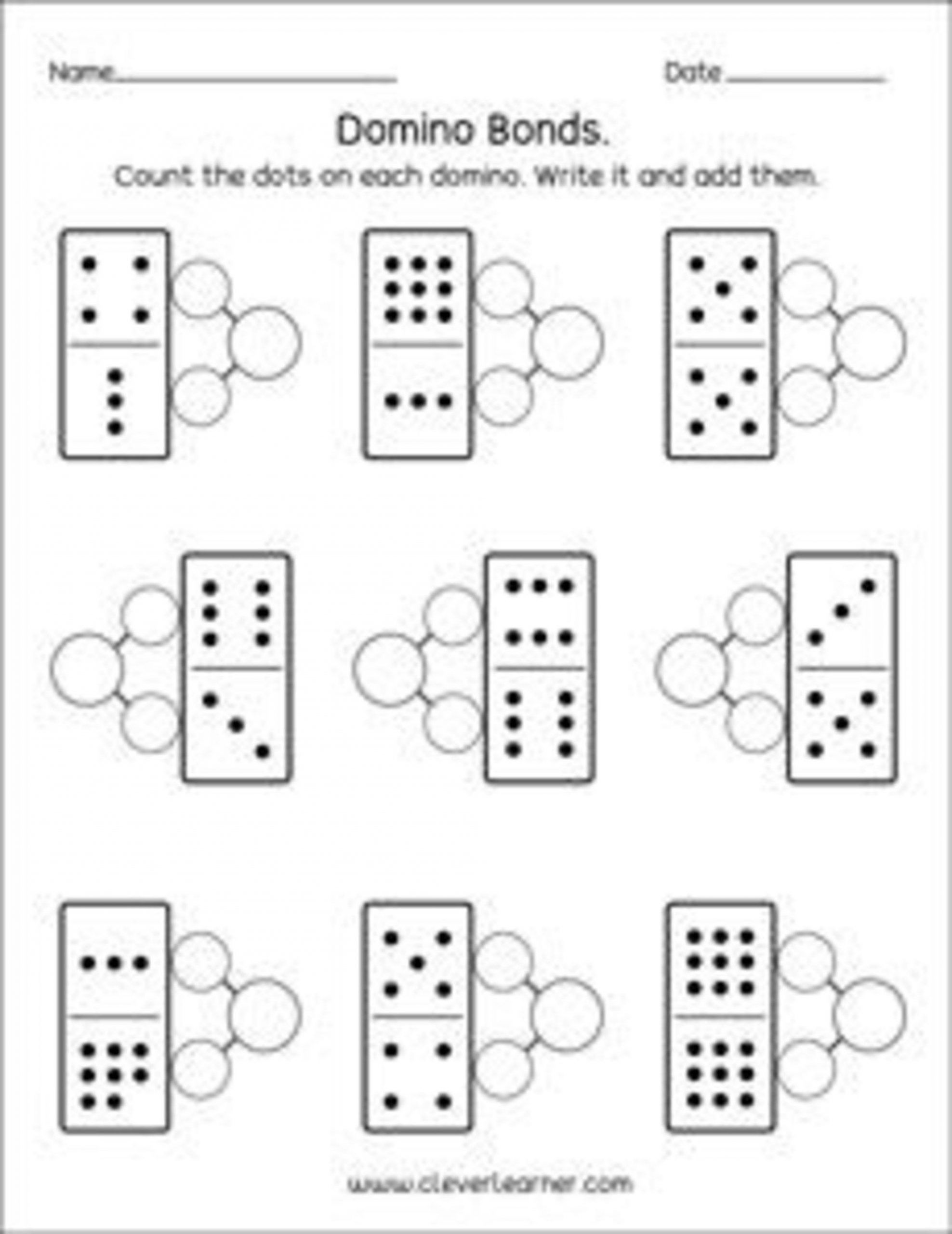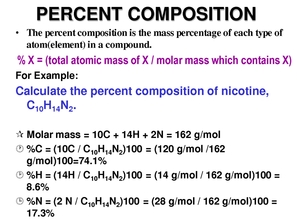Master Independent and Dependent Clauses Worksheet
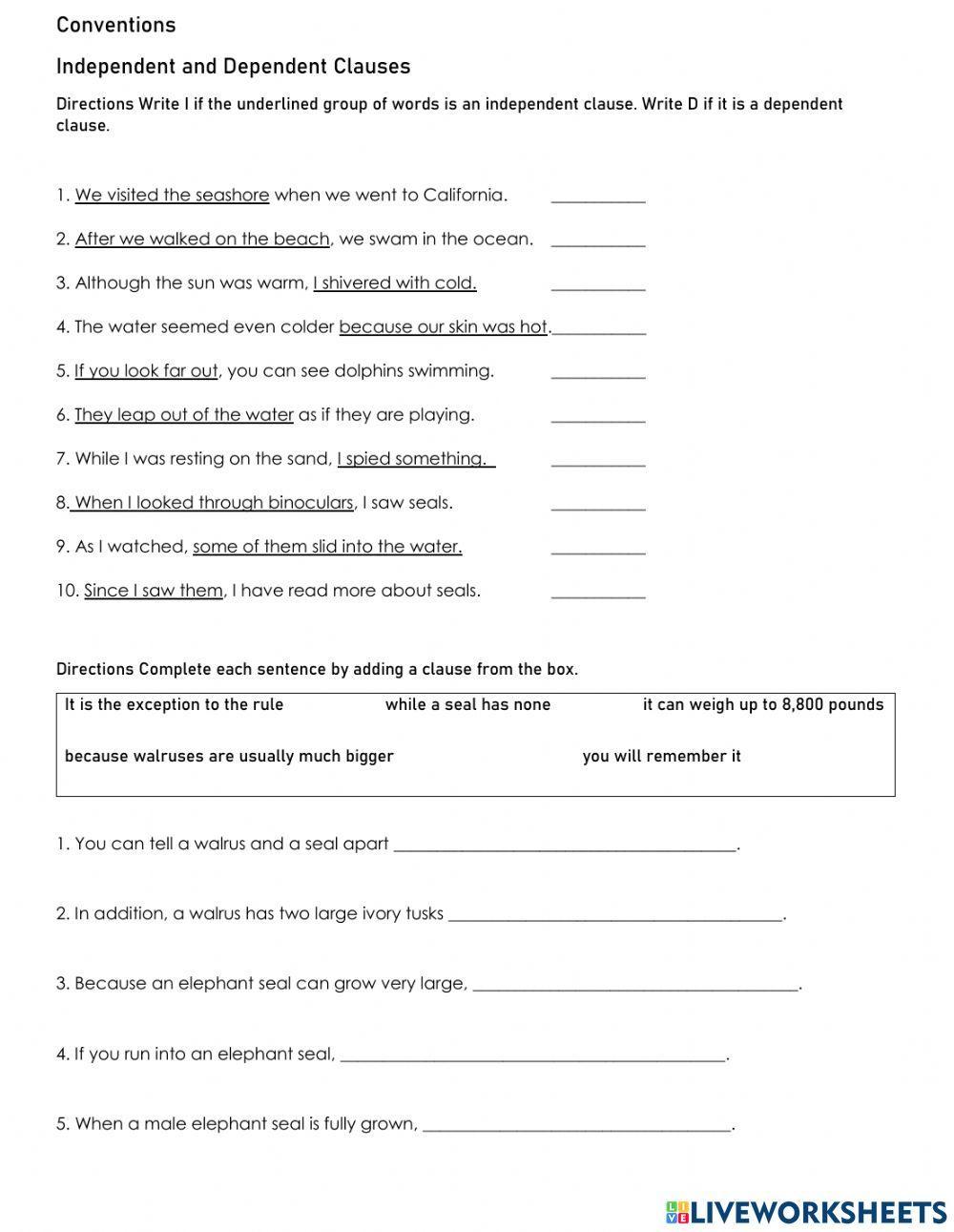
Understanding Independent and Dependent Clauses
When it comes to constructing sentences, clauses are the building blocks that help convey meaning. There are two main types of clauses: independent and dependent. In this post, we’ll explore the differences between these two types of clauses and provide a comprehensive worksheet to help you master them.
Independent Clauses
An independent clause is a group of words that contains a subject and a predicate (verb) and expresses a complete thought. It can stand alone as a complete sentence. Independent clauses typically have a subject and a verb, and they often follow a subject-verb-object (SVO) word order.
Examples of Independent Clauses:
- The sun rises in the east.
- The dog barks loudly.
- The teacher is writing on the board.
Notice how each of these clauses has a subject (the sun, the dog, the teacher) and a verb (rises, barks, is writing), and they express a complete thought.
Dependent Clauses
A dependent clause, on the other hand, is a group of words that contains a subject and a predicate, but it does not express a complete thought. It relies on an independent clause to complete its meaning. Dependent clauses often begin with a subordinating conjunction (such as because, since, or although) or a relative pronoun (such as which, that, or who).
Examples of Dependent Clauses:
- Because I forgot my lunch.
- Since the weather is nice.
- Which is on the table.
Notice how each of these clauses has a subject and a verb, but they do not express a complete thought on their own. They need an independent clause to complete their meaning.
Identifying Independent and Dependent Clauses
To identify whether a clause is independent or dependent, ask yourself:
- Does the clause have a subject and a verb?
- Does the clause express a complete thought?
If the answer is yes to both questions, it’s an independent clause. If the answer is no to either question, it’s a dependent clause.
📝 Note: Sometimes, a clause can be both independent and dependent, depending on the context. For example: "I went to the store because I needed milk." Here, "I went to the store" is an independent clause, but "because I needed milk" is a dependent clause.
Worksheet: Identifying Independent and Dependent Clauses
Directions: Identify each clause as independent (I) or dependent (D).
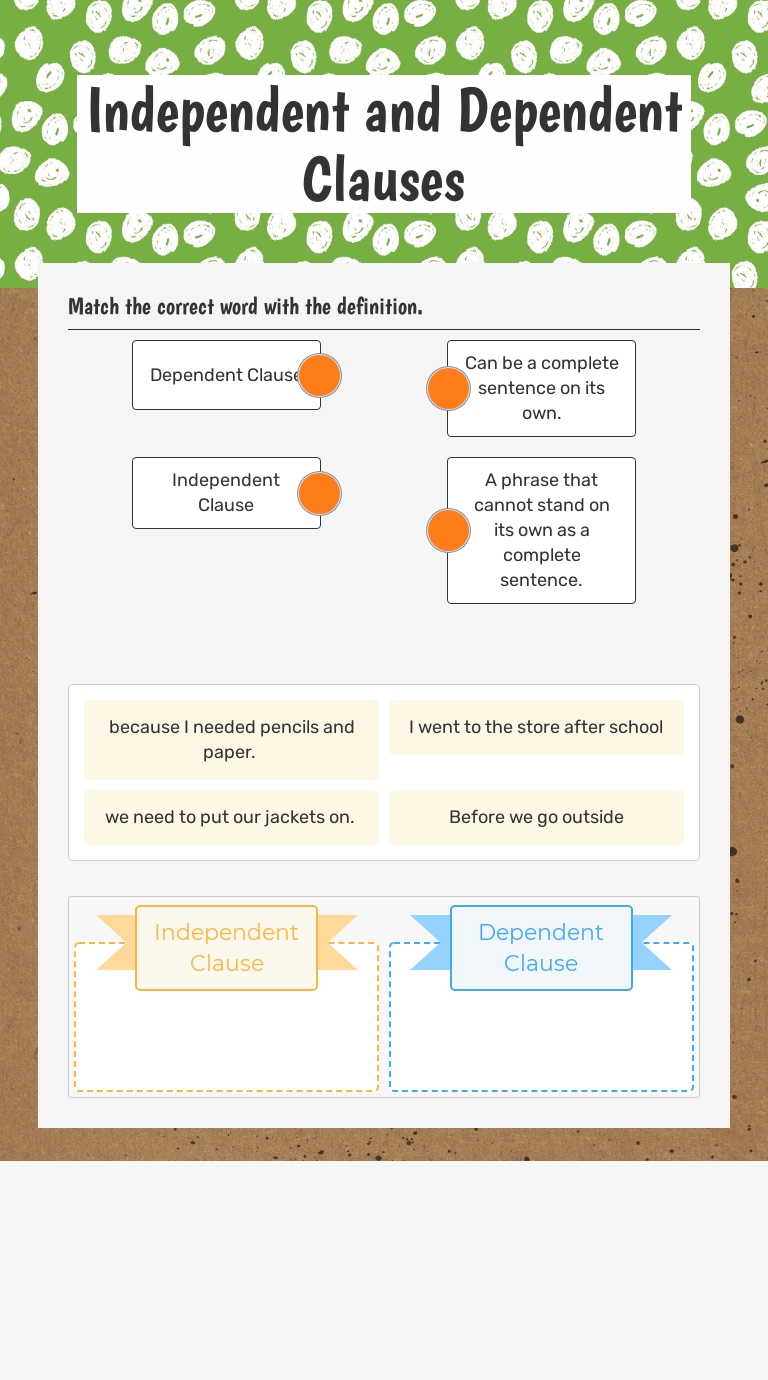
| Clause | Independent (I) or Dependent (D) |
|---|---|
| The cat is sleeping. | |
| Because I’m tired. | |
| The book, which is on the table, is mine. | |
| Since the sun is shining. | |
| The teacher gave us homework. | |
| Although it’s raining. | |
| The dog, that is barking, is friendly. | |
| I went to the store. | |
| Because I needed milk. |
Answers:
| Clause | Independent (I) or Dependent (D) |
|---|---|
| The cat is sleeping. | I |
| Because I’m tired. | D |
| The book, which is on the table, is mine. | I |
| Since the sun is shining. | D |
| The teacher gave us homework. | I |
| Although it’s raining. | D |
| The dog, that is barking, is friendly. | I |
| I went to the store. | I |
| Because I needed milk. | D |
Combining Independent and Dependent Clauses
When combining independent and dependent clauses, use a subordinating conjunction or a relative pronoun to connect them. This creates a complex sentence.
Examples of Combining Independent and Dependent Clauses:
- I went to the store because I needed milk.
- The dog, which is barking, is friendly.
- Although it’s raining, I still want to go outside.
Notice how each of these sentences combines an independent clause with a dependent clause using a subordinating conjunction or relative pronoun.
📝 Note: Make sure to use a comma to separate the independent and dependent clauses when using a subordinating conjunction or relative pronoun.
In summary, mastering independent and dependent clauses is crucial for effective sentence construction. By understanding the differences between these two types of clauses and practicing identifying and combining them, you’ll become a pro at crafting clear and concise sentences.
What is an independent clause?
+
An independent clause is a group of words that contains a subject and a predicate (verb) and expresses a complete thought.
What is a dependent clause?
+
A dependent clause is a group of words that contains a subject and a predicate, but it does not express a complete thought. It relies on an independent clause to complete its meaning.
How do I identify independent and dependent clauses?
+
To identify whether a clause is independent or dependent, ask yourself: Does the clause have a subject and a verb? Does the clause express a complete thought? If the answer is yes to both questions, it’s an independent clause. If the answer is no to either question, it’s a dependent clause.
